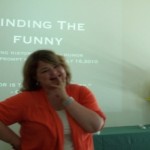Like the editors of Re-thinking Schools, I am “not waiting for Superman.” Last fall when the documentary “Waiting for Superman” made its debut, public school teachers across the nation imagined a bulls-eye on their backs, as the film portrayed charter schools and their exceptional teachers as the solution to mediocre public education. As Stan Karp, on the web site “Not Waiting for Superman,” indignantly commented,
Despite a lot of empty rhetoric about the importance of “great teachers,” the disrespect the film displays to real teachers working on the ground in public schools today is stunning. Not one has a voice in the film. There are no public school parents working together to improve the schools their children attend. There are no engaged communities. There is no serious discussion of funding, poverty, race, testing or the long and sorry history of top-down bureaucratic reform failure. [http://www.notwaitingforsuperman.org/Articles/20100920-RSEditorsNotWaiting]
I am “not waiting for Superman,” because I have spent twenty days listening to, and delighting in, twelve amazing teachers of writing, who gave up four weeks of their summer to become better teachers of writing. And I know, from experience, that there are 200 more sites of the National Writing Project completing very similar summer institutes as I write this. That makes about 3,000 teachers of writing becoming better writers and teachers by concentrating on their craft for six hours a day, while many of their detractors assume they are traveling or lying by the pool.
What they are doing is writing relentlessly, listening to demonstrations on teaching writing, offering feedback on the demonstrations, and setting a research agenda to investigate writing in their own classrooms.
They labored over their teaching and writing portfolios, which they have shared with each other, as they have shared all the products of their labor. And they appreciated each others’ work and worth and celebrated their personal and shared accomplishments. When I read their writing and witness their teaching, I wish the “Superman” film-makers were here to celebrate, too.
When these teachers return to their classrooms in the fall, they will be full of hope for their students and their schools, because nothing is so energizing as dedicated teachers working together. What will they find? Admiration? Respect? Curiosity? Structural or material support? Maybe not. As we often warn them, “A prophet is not without honor, except in his own country.”
Because their colleagues and principals are also “not waiting for Superman.” They don’t need heroes. They are a little out of patience with “born again” teachers and apostles of the “next great thing.” But they do want help. They know teaching is a collaborative sport, even though schools treat it as a competitive one. They know they are stretched beyond what a single teacher can accomplish. However, they will not do “better with less,” as Education Secretary Arne Duncan has exhorted them.
Do Writing Project teachers know anything that could benefit their colleagues? Yes, they know that teachers CAN collaborate with immense success and rejuvenation, given time and the inclination to listen to each other. These teachers have listened and reflected and offered words of encouragement that made them each feel like Superman, even if for a moment. Every time a teacher shared a practice or a successful lesson, eleven others were taking notes furiously, sorting the best from the valuable from the problematic. They not only offered each teacher collegial feedback, they learned from the shape and impact of each demonstration how their demonstration could be improved. The demonstrations gathered new elements as the summer proceeded and the kinds of response and interaction multiplied.  A group understanding of excellent teaching practice grew .
A group understanding of excellent teaching practice grew .
They will return to their schools in the fall, because 97% of institute participants stay in their classrooms for over seventeen years (Inverness Associates). They will not arrive as Superman, but as a colleague with a new excitement about teaching. My prayer is that the three thousand schools that receive them will respect them as equals with the same hopes and goals for the success of their students. They will remember that teachers need each other and provide every opportunity for teachers to work together, to share professional experience and to give desperately-needed encouragement.
Superman will not be gracing our schools in September. But I know 3,000 teachers who will reach out to their colleagues and share their dreams and practices for better instruction. There could be collegiality, instead of superstars and rivalries. There could be a teaching community. We are not waiting for Superman.
Summer Institute Daily Log, June 30, 2011
